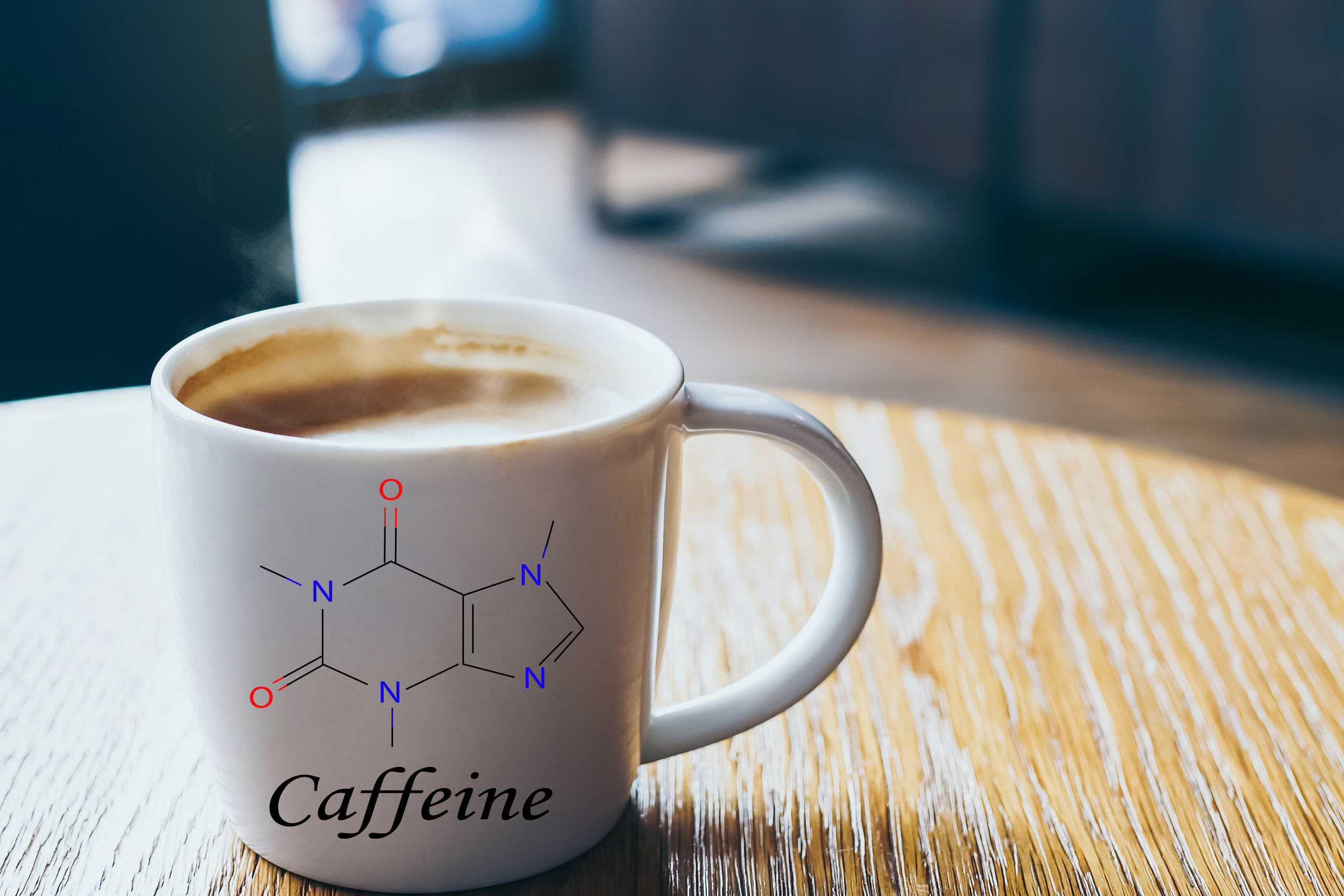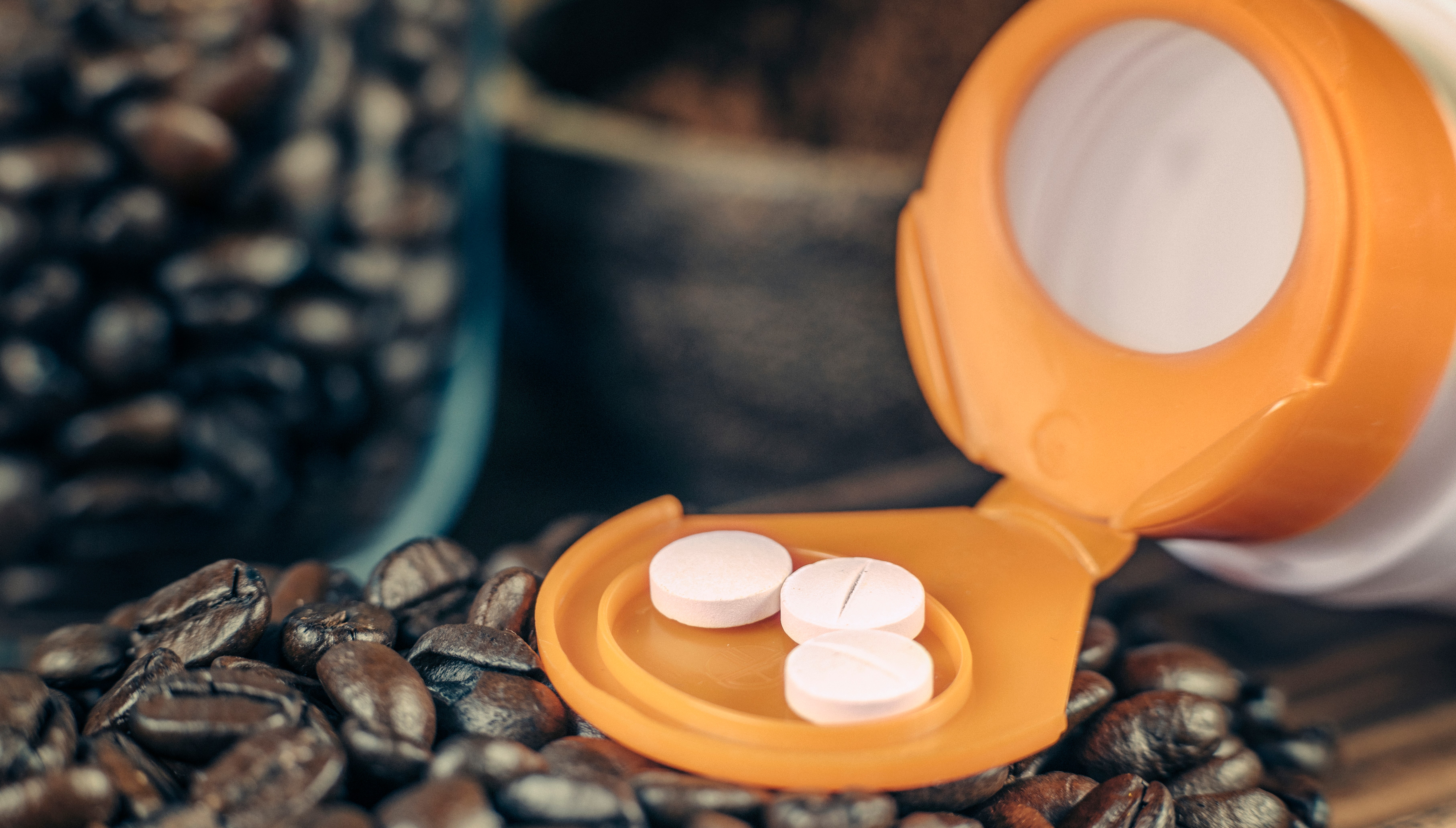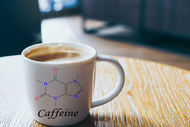Why Is Caffeine So Popular?
By on Jan 29th 2021

We have all probably had experience with caffeine with over 90% of the US population consuming it regularly in some form or another. Myself, I can’t function in the morning without a strong cup of caffeinated coffee. But there are many ways to get your “caffeine on” and I’m pretty sure I have tried most of them. So, what is caffeine and what makes it such a desirable product?
How Does Caffeine Affect Us?
First, we must understand how caffeine affects the human body. In the brain there is a chemical called adenosine (a-den-o-sine) that your body naturally produces. This is an inhibitory neurotransmitter which means it suppresses your central nervous system.
Basically, adenosine makes you tired. Adenosine when produced binds to nerve cells and tells the nerve cell that you should be tired and its time for bed. It also causes blood vessels to dilate or open up; this is thought to allow more blood into your brain when sleeping.
So, what does caffeine have to do with neurotransmitters? Well caffeine fits quite well into adenosine’s spot on the nerve cell wall. The nerve cell can’t tell the difference when caffeine takes adenosine’s place.
And with that, caffeine doesn’t slow down the nerve cell like adenosine would, thus pushing off the feeling of tiredness. So in actuality, caffeine doesn’t wake you up but rather stops you from falling asleep.
Additionally, when I said that adenosine causes the blood vessels to dilate and open up. Well, when caffeine is present the blood vessels constrict. This is important if you’re suffering from a headache and this can prevent the throbbing. For this reason, caffeine is present in headache and migraine medicines like Excedrin or Anacin.
Caffeine also releases a small amount of adrenaline and dopamine in your body. You’re probably familiar with these two drugs to some respect but here is a little review. Adrenaline is the “fight or flight” hormone that has several effects on our bodies.
This causes your heart to beat faster, airways to open, and your pupils to dilate among other things. Dopamine is what activates pleasure centers and rewards us. These benefits are always useful but especially so when doing something athletic.
The Most Common Supplements in Sports

Whether you take a 100 mg tablet before working out in the gym or drink some tea before hot yoga, caffeine is a useful tool when performing athletic feats. There is much research to back this up. Although caffeine has proven benefits, not all caffeine is created equal. Studies seem to suggest that anhydrous caffeine taken in capsule form seems to be the most effective (24% increase in performance compared to placebo), and with other methods like coffee and tea being slightly less effective.
So how much should we take? As with everything it depends on you. Someone who normally drinks a lot of coffee might need a bit more to get a good kick. As with most things, using it in moderation and easing into it with lower doses is always the best practice.
Athletes base their usage on their body weight. A normal usage would be 1.4-2.7mg of caffeine anhydrous per pound of body weight. For most people this is around 200-400mg. It is important to note that it is allowed in most sports’ organization with the exception of the NCAA.
Settling the Debate
We have all heard that either coffee or tea has more caffeine than the other, who is right? Again, depends on the type of drink but in general, coffee has more. An 8oz cup of regular brewed coffee has around 100mg of caffeine, while 8oz of brewed tea on the other hand has around 50mg of caffeine. So, by volume coffee has more caffeine than tea.
The confusion with this long-standing argument is because in actuality, Tea leaves contain 3.5% caffeine, compared to 1.1-2.2% that coffee beans have. But there are two things that make the coffee we drink, higher in caffeine.
Coffee uses hotter water when brewing which can extract more caffeine from the beans, and the amount of beans that are used. When making coffee more beans are used then tea leaves in making tea. That’s not to say you can’t have a stronger tea if you make it differently, this is just generally how it is prepared.
As with anything we do, all sources are found bellow. You can also look at all the different beverages that contain caffeine that would be tough for us to cover in one article.
So how do you get your daily kick of caffeine? Do you drink coffee, sip on some tea, or put some caffeine anhydrous in your fruit smoothie like me?
Need caffeine for your business? Ingredi has you covered. Click the link below:
Caffeine Anhydrous | 44 lbs Carton
Tell us what you are use our products for an you can save 5% on your next order!
Sources:
https://science.howstuffworks.com/caffeine4.htm
https://www.medicinenet.com/caffeine/article.htm
https://pubmed.ncbi.nlm.nih.gov/15635355/
https://www.ncbi.nlm.nih.gov/pmc/articles/PMC2824625/
https://www.healthline.com/nutrition/caffeine-and-exercise
https://www.mayoclinic.org/healthy-lifestyle/nutrition-and-healthy-eating/in-depth/caffeine/art-20045678#:~:text=Up%20to%20400%20milligrams%20(mg,two%20%22energy%20shot%22%20drinks.https://pubmed.ncbi.nlm.nih.gov/20205813/
https://www.researchgate.net/publication/258451908_Determination_of_Caffeine_Content_in_Tea_and_Mate_Tea_by_Using_Different_Methods
Drink Specifications:
https://www.caffeineinformer.com/the-caffeine-database
https://www.cspinet.org/eating-healthy/ingredients-of-concern/caffeine-chart
https://www.mayoclinic.org/healthy-lifestyle/nutrition-and-healthy-eating/in-depth/caffeine/art-20049372






